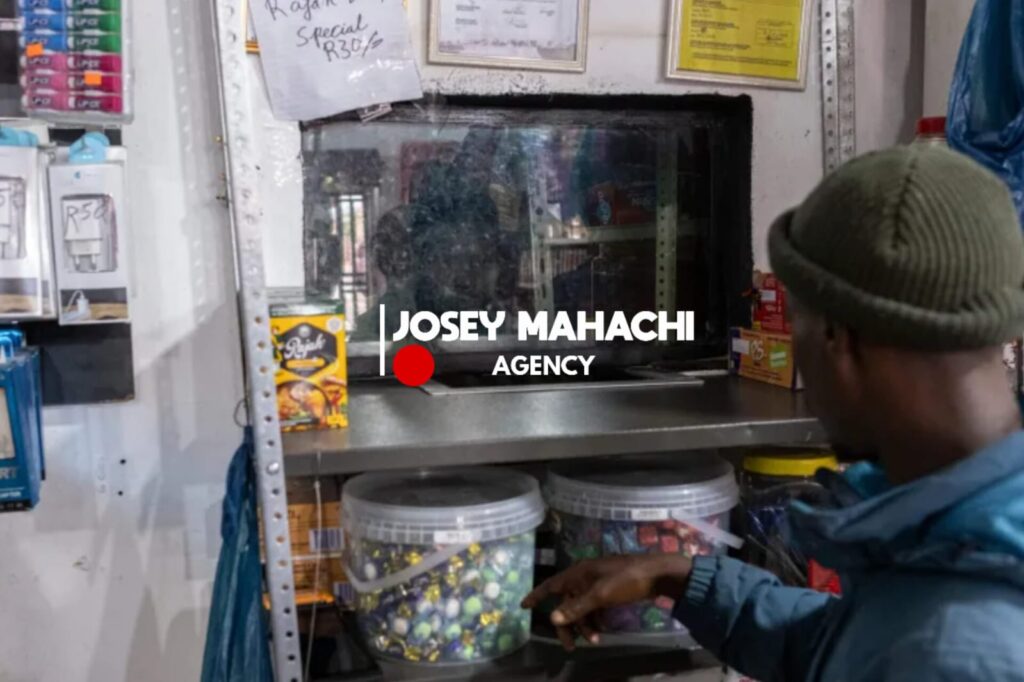By : Lloyd Mahachi
South Africa continues to grapple with the enduring legacy of apartheid, which has created significant disparities in the provision of essential services. The recent deaths linked to “spaza shops” have underscored the ongoing impact of apartheid on the country’s economy and healthcare system.
Spaza shops, informal convenience stores that emerged in black communities during the apartheid era, play a substantial role in South Africa’s economy, with over 150,000 shops nationwide. However, many of these shops operate without proper registration with local municipalities or tax authorities. Some sell expired or counterfeit products, highlighting a lack of regulation and oversight.
This has led to tragic incidents, such as the death of 10-year-old Lesedi Mulaudzi, who succumbed to suspected food poisoning after consuming snacks from a spaza shop. Unfortunately, this case is not isolated. Reports of food poisoning and other health issues linked to spaza shops are widespread.
In response, the government has announced plans to re-register spaza shops and enforce compliance with health and safety regulations. Critics, however, argue that this measure fails to address deeper systemic issues, such as inadequate waste disposal and sewage systems in townships.
The crisis underscores the glaring disparities in service provision across South Africa. Affluent neighborhoods benefit from reliable infrastructure and effective service delivery, while townships struggle with poor sanitation, inadequate waste management, and limited access to healthcare.
A shortage of health inspectors exacerbates the issue. For instance, Johannesburg has only 221 health inspectors, far below the recommended ratio of one inspector per 10,000 residents. This shortage makes it difficult to monitor and regulate spaza shops effectively.
Additionally, the illegal sale of toxic pesticides, such as Terbufos, has contributed to fatalities, particularly among children in Soweto. Weak regulatory systems have allowed these hazardous substances to infiltrate township markets, posing a grave risk to residents.
Critics have labeled the government’s response as insufficient. While re-registering spaza shops may provide some oversight, it does little to tackle the underlying issues of inadequate infrastructure and poor sanitation in townships.
A more comprehensive strategy is needed to address the challenges facing South Africa’s townships. This includes investing in infrastructure, expanding access to healthcare, and ensuring the effective regulation and monitoring of spaza shops.
The apartheid economy continues to cast a long shadow over South Africa, perpetuating deep inequalities. The tragic death of Lesedi Mulaudzi and others could have been prevented through timely government intervention—addressing rat infestations, curbing the illegal trade of restricted pesticides, and regulating spaza shops.
To truly move beyond its apartheid past, South Africa must prioritize the well-being of all its residents. A concerted effort is required to ensure that townships are no longer neglected.
The international community can also play a supportive role by providing technical assistance, funding, and other resources to help the South African government implement effective solutions.
Ultimately, the responsibility lies with South Africa’s leadership to take decisive action. By addressing infrastructure deficits, improving healthcare access, and enforcing regulations on spaza shops, the government can help create a more equitable future. These steps are essential to ensure that all South Africans have access to the services they need to thrive.
Editor : Josephine Mahachi

